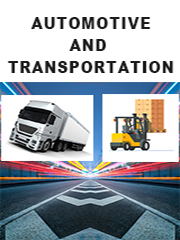Autonomous trains is the most sophisticated technology in the field of railway transport system. Technologically advanced system are used in trains to operate it without the aid of a driver and the safety of the passengers is increased. These trains are furnished with high-powered cameras, latest sensors, GPS data, and onboard computer systems. Autonomous train operation consist of different components which can be automated and based on the automation of components the Grades of Automation (GoA) are decided. The automation of train also consist of passenger safety technology which are included in autonomous train protection. Different terms used in autonomous trains market are: Automatic Train Protection (ATP), Automatic Train Operation (ATO), Automatic Train Control (ATC), Semi-Automatic Train Operation (STO), Driverless Train Automation (DTO), and Unattended Train Operation (UTO).
This report aims to provide a comprehensive presentation of the global market for Autonomous Trains, with both quantitative and qualitative analysis, to help readers develop business/growth strategies, assess the market competitive situation, analyze their position in the current marketplace, and make informed business decisions regarding Autonomous Trains. This report contains market size and forecasts of Autonomous Trains in global, including the following market information:
- Global Autonomous Trains Market Revenue, 2018-2023, 2024-2029, ($ millions)
- Global Autonomous Trains Market Sales, 2018-2023, 2024-2029, (K Units)
Global top five Autonomous Trains companies in 2022 (%)
The global Autonomous Trains market was valued at US$ 145200 million in 2022 and is projected to reach US$ 178180 million by 2029, at a CAGR of 3.0% during the forecast period. The influence of COVID-19 and the Russia-Ukraine War were considered while estimating market sizes.
Major driving factor for autonomous trains market is the increase in investment by the government in the public transport. There is need for speed and to avoid heavy traffic jams in some of the major cities of the world. Government is initiating the green environment and clean environment campaign so as to improve the air quality caused by the private vehicles.
We surveyed the Autonomous Trains manufacturers, suppliers, distributors and industry experts on this industry, involving the sales, revenue, demand, price change, product type, recent development and plan, industry trends, drivers, challenges, obstacles, and potential risks.
Total Market by Segment:
Global Autonomous Trains Market, by Type, 2018-2023, 2024-2029 ($ Millions) & (K Units)
Global Autonomous Trains Market Segment Percentages, by Type, 2022 (%)
Global Autonomous Trains Market, by Application, 2018-2023, 2024-2029 ($ Millions) & (K Units)
Global Autonomous Trains Market Segment Percentages, by Application, 2022 (%)
Global Autonomous Trains Market, By Region and Country, 2018-2023, 2024-2029 ($ Millions) & (K Units)
Global Autonomous Trains Market Segment Percentages, By Region and Country, 2022 (%)
- North America
- US
- Canada
- Mexico
- Europe
- Germany
- France
- U.K.
- Italy
- Russia
- Nordic Countries
- Benelux
- Rest of Europe
- Asia
- China
- Japan
- South Korea
- Southeast Asia
- India
- Rest of Asia
- South America
- Brazil
- Argentina
- Rest of South America
- Middle East & Africa
- Turkey
- Israel
- Saudi Arabia
- UAE
- Rest of Middle East & Africa
Competitor Analysis
The report also provides analysis of leading market participants including:
- Key companies Autonomous Trains revenues in global market, 2018-2023 (Estimated), ($ millions)
- Key companies Autonomous Trains revenues share in global market, 2022 (%)
- Key companies Autonomous Trains sales in global market, 2018-2023 (Estimated), (K Units)
- Key companies Autonomous Trains sales share in global market, 2022 (%)
key players include:
- Thales Group
- Alstom
- Hitachi
- Bombardier Transportation
- CRRC Corporation
- Outline of Major Chapters:
- Chapter 1: Introduces the definition of Autonomous Trains, market overview.
- Chapter 2: Global Autonomous Trains market size in revenue and volume.
- Chapter 3: Detailed analysis of Autonomous Trains manufacturers competitive landscape, price, sales and revenue market share, latest development plan, merger, and acquisition information, etc.
- Chapter 4: Provides the analysis of various market segments by type, covering the market size and development potential of each market segment, to help readers find the blue ocean market in different market segments.
- Chapter 5: Provides the analysis of various market segments by application, covering the market size and development potential of each market segment, to help readers find the blue ocean market in different downstream markets.
- Chapter 6: Sales of Autonomous Trains in regional level and country level. It provides a quantitative analysis of the market size and development potential of each region and its main countries and introduces the market development, future development prospects, market space of each country in the world.
- Chapter 7: Provides profiles of key players, introducing the basic situation of the main companies in the market in detail, including product sales, revenue, price, gross margin, product introduction, recent development, etc.
- Chapter 8: Global Autonomous Trains capacity by region & country.
- Chapter 9: Introduces the market dynamics, latest developments of the market, the driving factors and restrictive factors of the market, the challenges and risks faced by manufacturers in the industry, and the analysis of relevant policies in the industry.
- Chapter 10: Analysis of industrial chain, including the upstream and downstream of the industry.
- Chapter 11: The main points and conclusions of the report.
